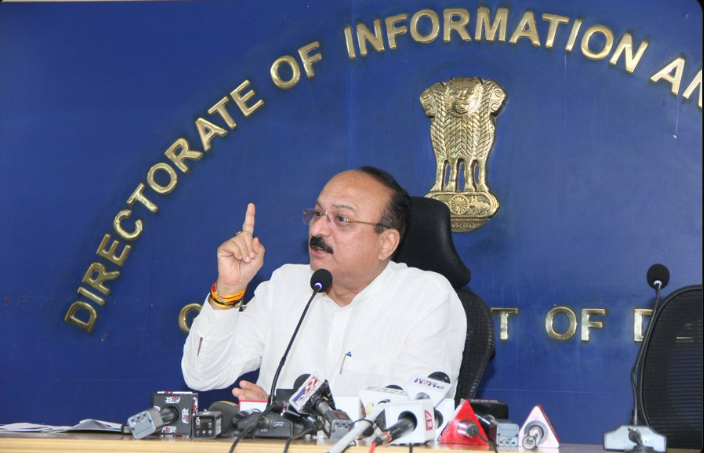In a significant move to enhance digital learning infrastructure, the Delhi government has sanctioned a comprehensive plan to install smart blackboards in government school classrooms. Education Minister Ashish Sood, addressing a press conference on Tuesday, confirmed that the Cabinet has approved the necessary budget for the ambitious project. The initiative aims to transform 18,996 classrooms by equipping them with advanced smart blackboards, marking a major leap towards technology-integrated education in the capital.
According to the minister, the rollout will be executed in five structured phases, ensuring a smooth and organized implementation. Notably, 2,466 of the smart blackboards are earmarked for ‘CM Shri Schools,’ a model school initiative that has been central to Delhi’s education reforms.
“The government is committed to strengthening the public education system by incorporating modern tools in classrooms. The installation of smart blackboards is a step in that direction,” said Sood. He further emphasized that these blackboards will allow for interactive teaching, making lessons more engaging and effective for students.
To complement the technological upgrade, a training module for teachers has also been approved. This module will help educators adapt to the new teaching methods and utilize the smart blackboards efficiently. “It’s not just about installing devices; it’s about enabling our teachers to make the most of this innovation. Training is an essential part of the project,” the minister added.
The Education Department has outlined a clear roadmap for the phased execution of the project. While no specific timeline was disclosed at the press conference, sources suggest that initial work will begin soon, prioritizing schools that currently lack access to digital teaching tools.
This development is in line with the Delhi government’s broader vision to modernize classrooms and provide quality education to all students, regardless of their socio-economic background. With this initiative, the capital joins a growing list of Indian states investing in smart education infrastructure.
Experts believe the integration of smart blackboards could significantly improve learning outcomes, particularly in subjects that benefit from visual aids and interactive instruction. By bridging the gap between traditional and digital education, the project aims to prepare students for a more technology-driven future.
The government has assured continuous monitoring and feedback during the implementation to ensure the project meets its educational goals and stays on track throughout all five phases.








